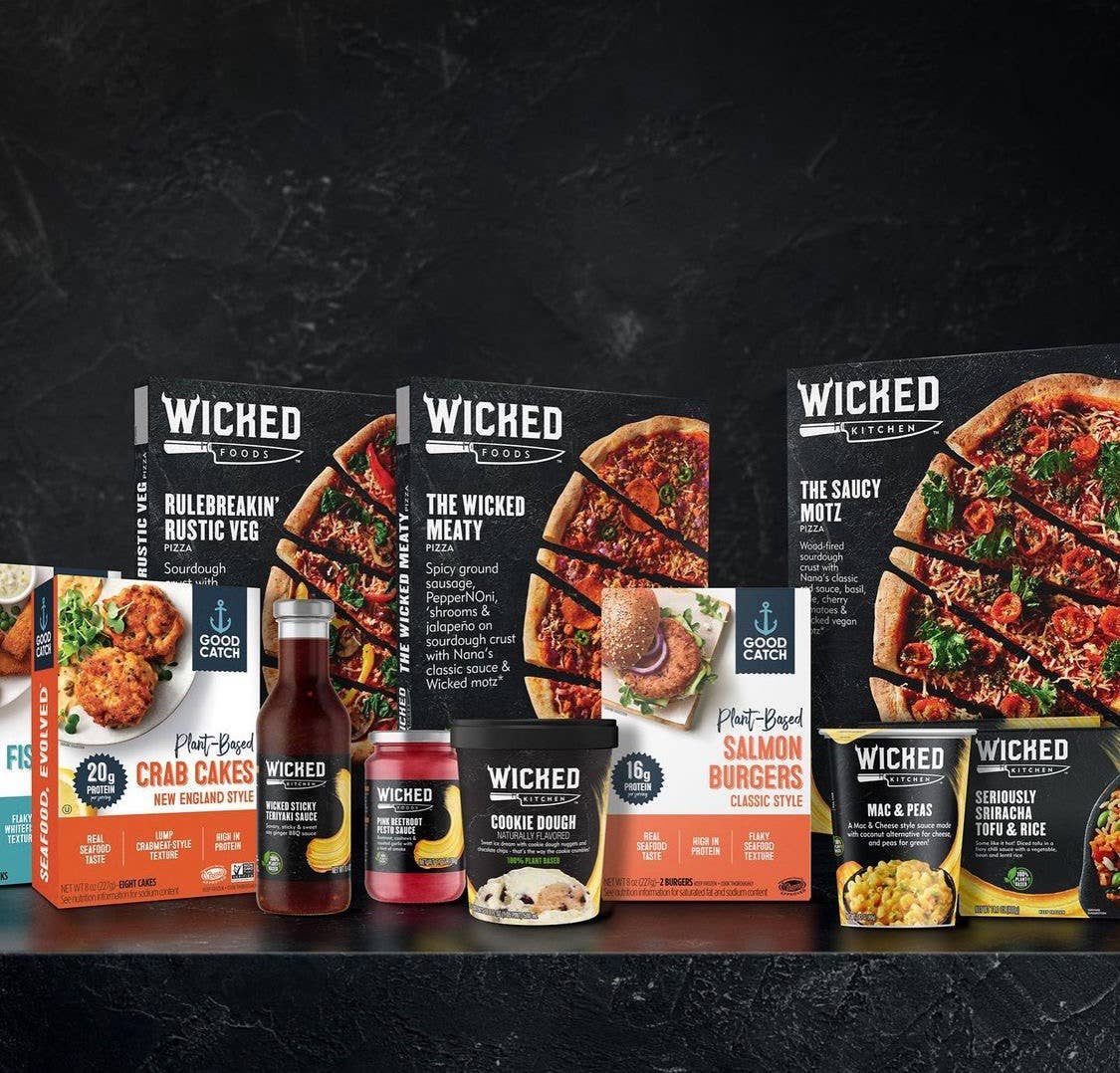
Cultured Meat Industry Secured Nearly $366 Million of Funding In 2020
Cultured meat has rapidly become the rising star of the sustainable food industry, as several companies worldwide are racing to gain patents and government certifications to allow the proliferation of these lab-produced meat products. Restaurants from Singapore to Qatar are preparing to serve the new cell-based meat including San Francisco's famous Atelier Crenn, propelling the sustainable protein into the spotlight. And now a new report from the Good Food Institute states that the cultured meat industry just experienced its best funding year ever, securing more than $366 million in 2020.
The Good Food Institute has published three separate 2020 State of the Industry reports that analyzed the growth of plant-based companies, fermented foods, and the cultured meat industry. The report states that the cultured meat industry now consists of nearly 70 startups worldwide with multiple companies including GOOD Meat and UPSIDE Foods attempting to complete governmental approval.
Across the market, food tech companies have developed cell-based methods to replicate salmon, lobster, chicken, pork, beef, and more.
The popularity of these meats is that, after taking an initial starter cell, they can be replicated indefinitely without harm to animals and with a much lower impact on the environment. Vegans are not fans because, first of all, the original product starts with an animal having to be harmed or at least involved in the process, and secondly, the composition of the food is identical to animal protein on a cellular level. So if you are trying to avoid whey for health reasons, for instance, the cell-based version of dairy still contains whey and also casein, the original animal protein.
Perfect Day, a producer of cell-based diary, states on its FAQ page that while its dairy started by taking the animal out of the equation: "Perfect Day creates milk proteins. Any product made with our protein is not dairy-free and contains a milk protein allergen. For the first time in the history of milk, actual cow's milk proteins (whey and casein) are being produced in something other than a cow (fermentation tanks, visit our process page for more)."
Investors are flocking to cell-based meat companies to help reduce greenhouse emissions
International investors such as Blue Horizon, Big Idea Ventures, KBW Ventures, and VegInvest were found to be among the most active investors in the cultured meat industry. Around the globe, the cultured meat industry accumulated 245 investors within the last four years. Investments rose nearly 7 percent from 2019. The report detailed that last year cultured meat companies accounted for nearly 14 percent of overall funding in the alternative protein sector.
The increased funding can be partially attributed to the increased movement and funding from governments worldwide. Overall, the investments that occurred within the last year account for 72 percent of the total capital raised from 2016 to 2020. The investment packages will be used to push development as the companies inch closer to regulatory approval from several countries including the United States and Qatar.
“I was most excited to see the influx of funding from governments signaling a federal commitment to cultured meat,” Head of External Innovation and Partnerships at Merck KGaA Lavanya Anandan said in the GFI report. “This has fueled the rise of several new collaborative public-private research consortia concepts across the globe ... aiming to comprehensively address a wide array of topics from economics to consumer acceptance. Together these developments will propel fundamental research and accelerate market entry and adoption.”
Earlier this month, Associate Director Global Food Science at Mintel Stephanie Matucci discussed the potential of the lab-grown protein sector with Food Business News during the Trends and Innovation webinar. Matucci explained that the future of protein or meat production will rely on two forms of cell-based meat: cellular agriculture and precision fermentation. She discussed how companies including Perfect Day and New Culture have already worked to develop methods to recreate cow proteins to provide consumers with a milk product to rival the conventional dairy industry.
“Major disruption is coming to protein ingredients,” Mattucci said. “Clean meat or lab-grown meat is expected to disrupt both the meat industry and the plant-based meat industry."
The first company to launch a cell-based meat product for public sale is Eat Just through its GOOD Meat brand. The company officially launched the cell-based chicken in Singapore following its regulatory approval. The company recently secured a $170 million funding round to enhance the development of its cell-based products and eventually increase its distribution across other markets including the United States.
“Just as fully electric cars will someday simply be referred to as ‘cars,’ cultivated meat can become the default if the industry receives adequate public and private funding to scale up,” Managing Director of Good Food Institute Mirte Gosker said. “Forward-thinking hospitality leaders like JW Marriott Singapore South Beach and restaurants like Madame Fan are providing a sneak peek of what’s possible in that safer and more sustainable future.”
Fast-food restaurants have finally got the memo that their customer base isn’t just coming through for a burger, fried chicken, or a beef taco. Many now have plant-based foods and are coming up with creative, delicious ways to get more greens on the menu. Here are the 6 best fast-food chains with plant-based options on the menu.
1. Burger King
Turns out there’s a lot more to rely on than a salad if you’re eating plant-based. Burger King has the Impossible Whopper featuring a meatless patty as well as a few secretly vegan options such as the French Toast Sticks and Hashbrowns.
2. White Castle
Known for its mini square-shaped sliders, this hamburger chain jumped on the plant-based bandwagon at some participating locations. You can find an Impossible Slider on some White Castle menus.
3. Del Taco
This was the first national Mexican fast-food chain to offer Beyond Meat at the company’s 580 restaurants across the country. Del Taco has the Beyond Avocado Taco on the menu along with the Epic Beyond Original Mex Burrito and Avocado Veggie Bowl.
4. Carl's Jr.
Another brand synonymous with beef burgers, Carl’s Jr. offers several plant-based options for veggie and plant lover such as Beyond Famous Star Burger and Guacamole Thickburger.
5. Taco Bell
This fast-food restaurant may have been one of the first you frequented while transitioning to plant-based eating. That’s because Taco Bell has eight million vegetarian combinations and sells 350 million vegetarian items a year through menu substitutions or ordering off their vegetarian menu. In fact, they were the first quick-service restaurant to offer American Vegetarian Association (AVA) certified food options.
6. Starbucks
From the time it started offering breakfast sandwiches in 2006, the coffee conglomerate became a competitor in the fast-food space. You can get your favorite hot and cold beverages made with almond, coconut or oat milk but there are also plant-based food options available such as the Baja Black Bean Veggie Wrap, bagel with vegan cream cheese and Impossible Breakfast Sandwich.
More From The Beet






